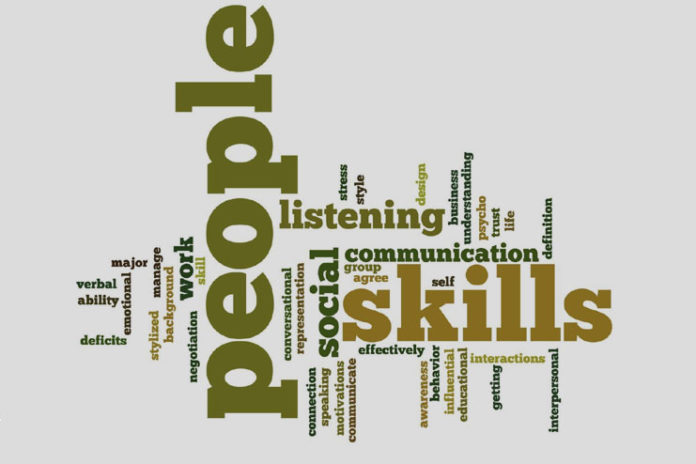Interpersonal skills are the relationships and understanding based on interactions. Children experience and communicate with people and develop the understanding norms for interactions. Developing interpersonal skills in children early on, is very important. They learn to make associations, put forth their views and resolve conflicting interactions. Interpersonal skills are not just being polite but being right, the voice, pitch, volume have to be modulated and right words at right time. This will help a child to grow up into an optimistic, charismatic and confident individual.
[Also Read: Dealing with children’s behavior issues]
Children must be able to deal with people on a one to one basis which will help in formulating mannerisms and persuasion. Children must be taught from the beginning to listen and develop verbal skills. The more we as a parent listen and appreciate our child, more and more they also start following. Whatever we wish to imbibe in our children must be definitely practices by us. Children develop everything based on experiences and specially how parents interact
With technology and language, both written and verbal, have become short hand sometimes without meaning. This is causing great deal on development of children. It is therefore necessary to keep reinforcing the right ways to a child. Do not push a child to speak or not speak anything particular, let them learn by your experiences.
[Also Read: Stages of cognitive development in children]
How to develop interpersonal skills in children:
1- Be a good listener:
 Listen to your child more and more. So that they also learn the importance of listening. Be an active listener with proper eye contact, adequate gestures and showing interest in listening.
Listen to your child more and more. So that they also learn the importance of listening. Be an active listener with proper eye contact, adequate gestures and showing interest in listening.
2- Give due credit and appreciate:
 Make your habit of appreciating your child whenever she does a good deed. Be a part of the happiness and make your child enjoy and appreciate when she feels the same for others
Make your habit of appreciating your child whenever she does a good deed. Be a part of the happiness and make your child enjoy and appreciate when she feels the same for others
3- Welcome questions:
Keep answering your childs questions and make her more and more self-aware and encourage interaction. Teach your child to be same encouraging and listen when interacting with others.
4- Learn to empathize:
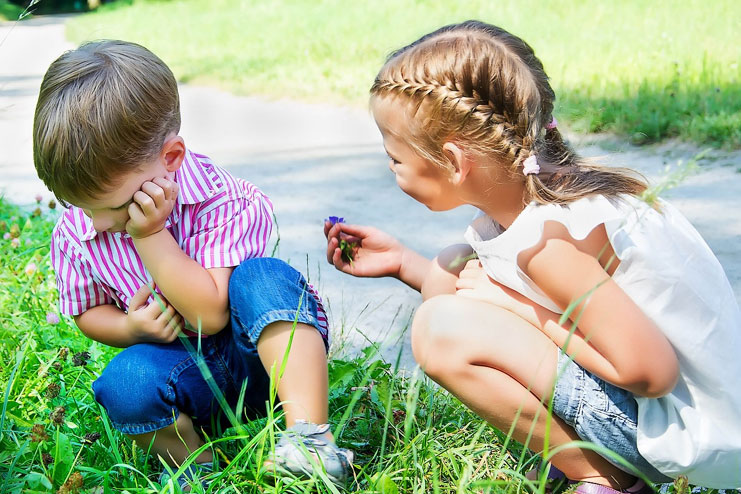 Children must be appreciating of others views and behaviors. They must have acceptance of others perspectives.
Children must be appreciating of others views and behaviors. They must have acceptance of others perspectives.
5- Sharing:
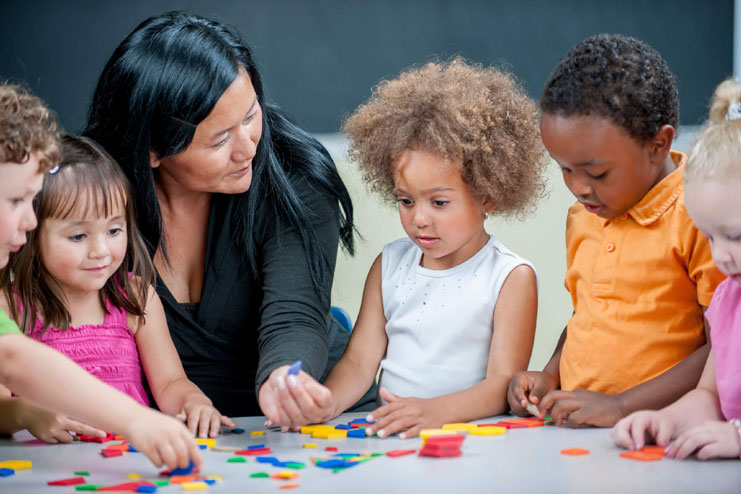 Children must learn to share but not at the cost of leaving their chance. They must always be polite when it comes to refusing certain toys or books which your child was using first. After finishing they must share it ahead. Sharing and giving up are two separate entities, and we must only focus on sharing. This will help the child in having her own self confidence and be a good leader
Children must learn to share but not at the cost of leaving their chance. They must always be polite when it comes to refusing certain toys or books which your child was using first. After finishing they must share it ahead. Sharing and giving up are two separate entities, and we must only focus on sharing. This will help the child in having her own self confidence and be a good leader
6- Avoid being a part of everything your child does:
Let your child develop her own ways and methods to resolve and interact. Dont be a helicopter parent always interrupting when children interact.
7- Promote Pretend play and make-believe games:
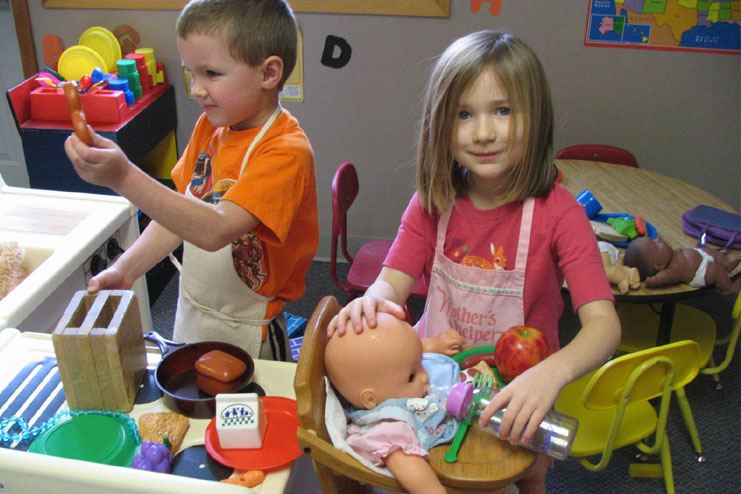 A child would learn newer insights into how to behave when someone else is interacting and they will gain perspectives for what to speak with whom
A child would learn newer insights into how to behave when someone else is interacting and they will gain perspectives for what to speak with whom
8- Teach a child the basics:
Like appropriate greetings, willingness to connect and participate, begin conversations without parents around, optimal assertions to put forth their own ideas, negotiation and conflict resolution, keep others personal space in mind, contain the aggression and passion to an acceptable level. This will help in developing life long interpersonal skills in children.
9- Encourage conflict resolution with proper ways:
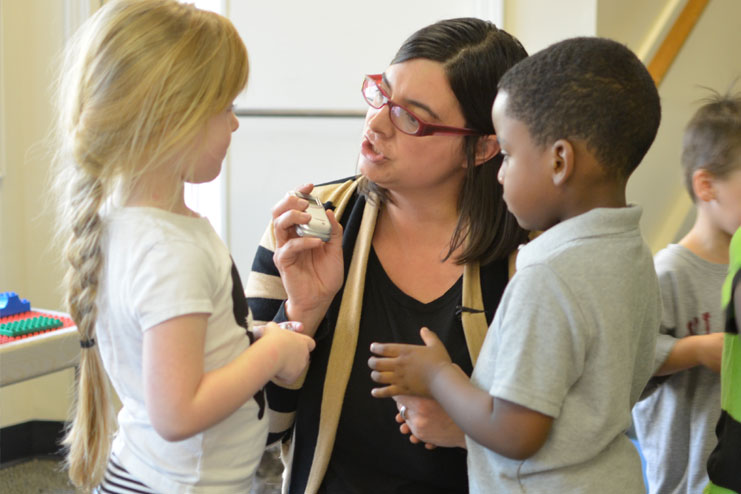 Draw a boundary for appropriate. Keep a control on the emotions and physical gestures. A child must be able to first identify the issue and then resolve it and more careful about the other persons behavior.
Draw a boundary for appropriate. Keep a control on the emotions and physical gestures. A child must be able to first identify the issue and then resolve it and more careful about the other persons behavior.
{Also Read: Conflict resolution activities for K-5 children}
10- Body language:
Teach children the importance of non verbal communication or body language. A child must be able to contain her own hand body movements and use eye coordination and expressions to utmost benefit their interactions.
11- Be a good leader and manager:
A child must be given proper guidance to be a good leader and manager too. Learn to speak for her own and also in a team when playing or interacting with others, see the benefit of entire clan.
[Also Read: Time Management for a mom]
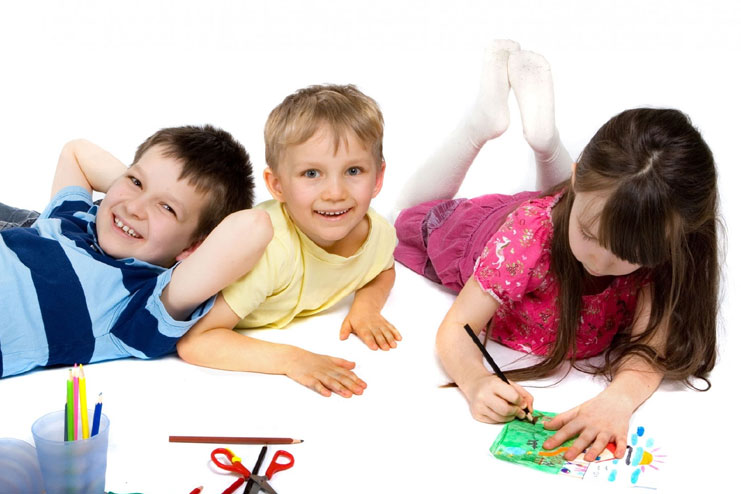 Developing interpersonal skills in children is as important as any other milestone. Children must be given proper guidance and help by parents and also left free to formulate their own ways to interact and make friends. Children must be listened and encouraged to ask questions. Teach them the importance of non verbal communication or body language. The more children interact and observe , they will gain better understanding of human behavior.
Developing interpersonal skills in children is as important as any other milestone. Children must be given proper guidance and help by parents and also left free to formulate their own ways to interact and make friends. Children must be listened and encouraged to ask questions. Teach them the importance of non verbal communication or body language. The more children interact and observe , they will gain better understanding of human behavior.
By Minu Manisha

